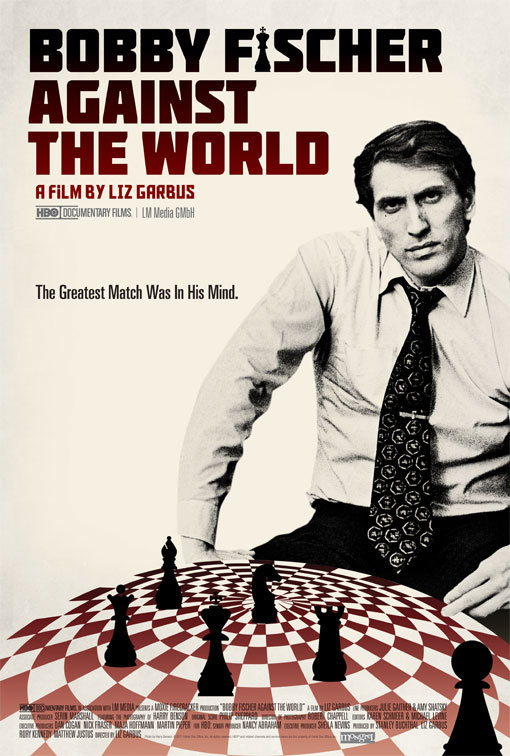 FRESH AIR
FRESH AIR
![]() The late Bobby Fischer was a chess prodigy who grew up to become one of the greatest chess players of all time. In later years, Fischer was also a reclusive nomad, who made anti-American and anti-Semitic statements and seemed increasingly lost, at times, in the depths of his own mind. Reconciling the two sides of Bobby Fischer is the subject of Liz Garbus’ new documentary biopic, Bobby Fischer Against the World. Garbus contrasts Fischer’s later years — when he became increasingly paranoid and delusional — with archival footage from his childhood and the famous 1972 “Match of the Century,” when a young Fischer beat Russian Boris Spassky for the world title at the height of the Cold War — and became an international superstar. “It’s hard to imagine that in 1972, all eyes were on a chess match, but it does, in fact, seem to be the case,” Garbus says. “Bobby Fischer was this self-taught Brooklyn boy who took the New York chess scene and then the national chess scene by storm. And the Russians had been dominating the sport for decades. … So for an American to have a real chance at beating that [Soviet] machine, this was big stuff. … The symbolism of the match was enormous.” On today’s Fresh Air, Garbus and international chess master Anthony Saidy, one of Fischer’s childhood friends, join Dave Davies for a conversation about Fischer’s unconventional life and the documentary film, which premieres June 6 on HBO. MORE
The late Bobby Fischer was a chess prodigy who grew up to become one of the greatest chess players of all time. In later years, Fischer was also a reclusive nomad, who made anti-American and anti-Semitic statements and seemed increasingly lost, at times, in the depths of his own mind. Reconciling the two sides of Bobby Fischer is the subject of Liz Garbus’ new documentary biopic, Bobby Fischer Against the World. Garbus contrasts Fischer’s later years — when he became increasingly paranoid and delusional — with archival footage from his childhood and the famous 1972 “Match of the Century,” when a young Fischer beat Russian Boris Spassky for the world title at the height of the Cold War — and became an international superstar. “It’s hard to imagine that in 1972, all eyes were on a chess match, but it does, in fact, seem to be the case,” Garbus says. “Bobby Fischer was this self-taught Brooklyn boy who took the New York chess scene and then the national chess scene by storm. And the Russians had been dominating the sport for decades. … So for an American to have a real chance at beating that [Soviet] machine, this was big stuff. … The symbolism of the match was enormous.” On today’s Fresh Air, Garbus and international chess master Anthony Saidy, one of Fischer’s childhood friends, join Dave Davies for a conversation about Fischer’s unconventional life and the documentary film, which premieres June 6 on HBO. MORE
